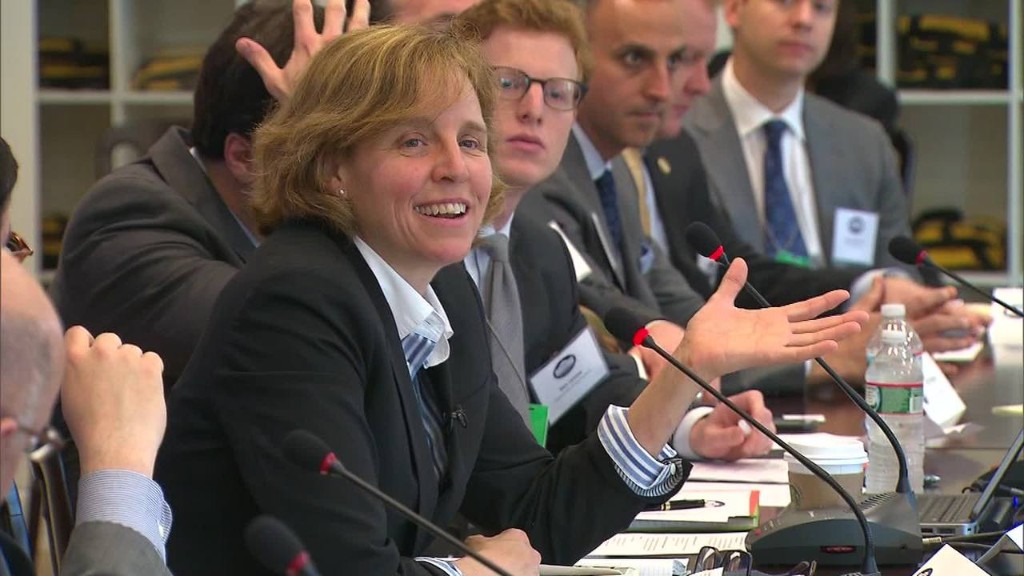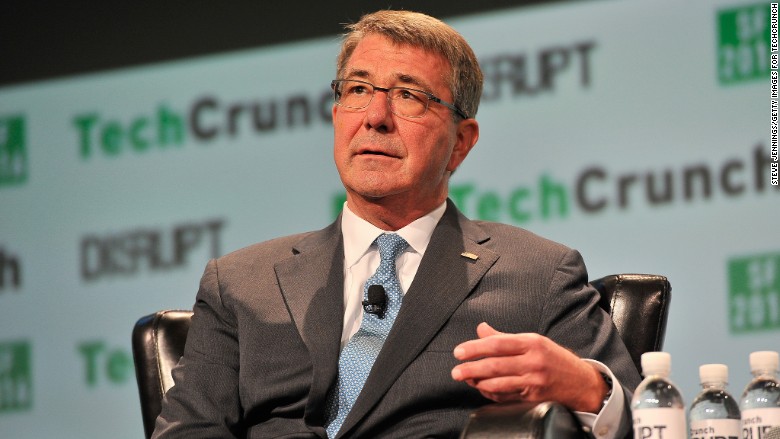
If the Department of Defense wants to lure Silicon Valley's brightest minds, it might have to overlook a little recreational drug use.
"Times change," said U.S. Secretary of Defense Ash Carter during TechCrunch Disrupt in San Francisco on Tuesday.
Carter took the stage at the tech conference to talk about collaboration, the importance of encryption, Edward Snowden and loosening some of its long-standing policies on drug tests.
"We need to understand, and we do, the way people's lives have changed and not hold against them things they have done when they were younger," said Carter.
The San Francisco startup conference might seem like an odd stop for Carter, who was one of few attendees to wear a full suit and tie over a hoodie.
Related: Obama's staff is taking over Silicon Valley
The interview was part of the Department of Defense's year-long push to win over tech companies and work with them on the next wave of innovative technologies.
"In addition to making sure we're defeating today's enemies and deterring today's attacks, I also need to make sure our department has the best tech in the future," said Carter.

The DoD has even started a special unit to bring the two sides together. The Defense Innovation Unit Experimental, or DIUx, has offices in innovation hot spots Silicon Valley and Boston. It invests money in promising companies and commercial technologies it thinks could have military applications.
The DoD is particularly interested in artificial intelligence. While it's likely working on its own research, companies like Facebook (FB), Google (GOOG) and IBM (IBM) have been leading the way with developments in deep learning.
However, Carter said there are no plans to turn the execution of military decisions over to artificial intelligence.
"When it comes to the use of equal force, there always needs to be a human being involved in those decisions," said Carter.
Some groundbreaking technology born in the military finds its way to mainstream use, like drones. But often the real innovation happens at universities or private companies, he said. The DoD is also looking into autonomous vehicles, cybersecurity, training technology and commutation.
Big names like Alphabet (AB100MOM) executive chairman Eric Schmidt, Amazon (AMZN) founder Jeff Bezos and Code for America executive director Jennifer Pahlka sit on the DoD's Defense Innovation Advisory Board.
Related: Apple's iOS 10 is all about fun messaging and photos
While the technology community and government don't always see eye to eye on issues such as encryption, Carter called for greater collaboration.
"We are staunchly on the side of strong encryption," said Carter.
But he also argued there should be some exceptions for law enforcement and noted the solution isn't as easy as giving the government special workarounds to consumer encryption.
The answer will require openly collaborating with technology companies, he said.

